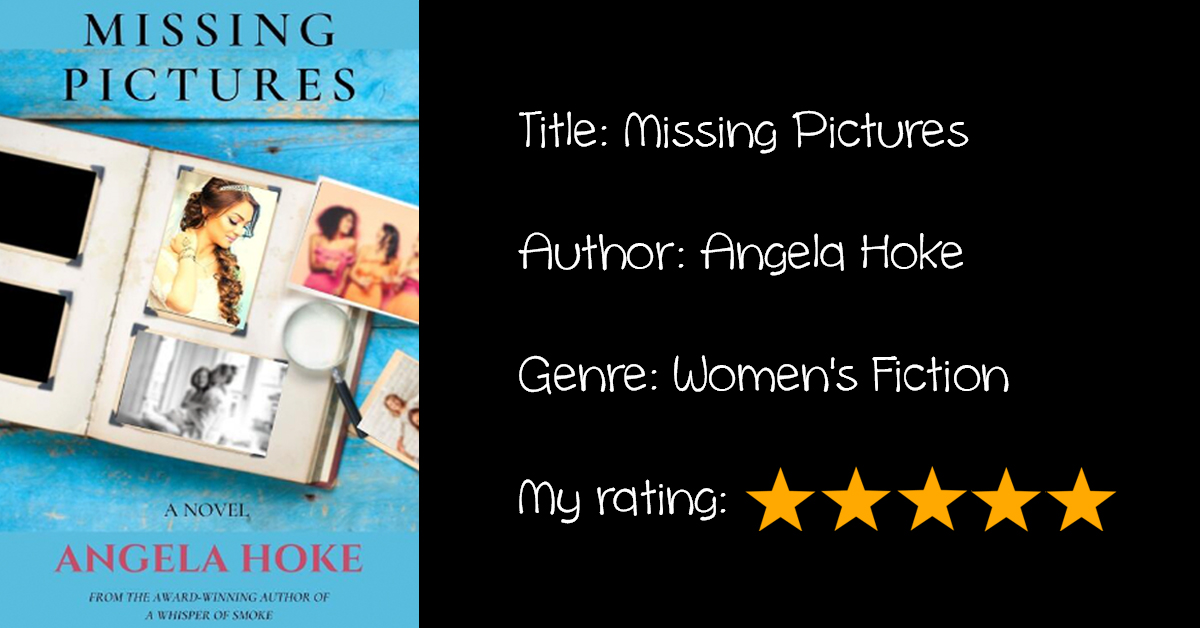Review: “Missing Pictures”
A raw, emotional foray into the harrowing, hilarious capriciousness of mental illness
This was my sixth book I chose via the Reedsy Discovery program, for which I am the single approved reviewer for this new book. I chose it because I love the genre of women’s fiction, and the preview drew me in. This review also appears on Reedsy.
If you’re interested in becoming a Reedsy reviewer (and have the chance to get paid “tips” to review books!) check it out here.
The Premise
On the heels of a painful divorce from an emotionally abusive husband, Claire falls into a debilitating depression that forces her to take a leave of absence from her high-powered job as a senior director of financial analysis at a Fortune 500 tech company.
Bolstered by the encouragement of her new friends whom she met at group therapy, she decides to reenter the dating scene in her late 30s. Unfortunately, the pickings are slim, and even the promising ones eventually disappoint. But even worse, Claire is terrified that she is the disappointment — a terrible mother, an insufficient wife, an incompetent employee, and now a crazy woman unable to keep her Depression (with a capital D) at bay.
Along with her friends Gretchen and Tasha, both single moms also fighting their own battles with mental illness, Claire forges an inseparable bond — a sisterhood that can survive the spiteful ex-husbands, the epically bad dates, and the darkest doubts and insecurities, with the triumph of laughter and unconditional love.
The Pros
This novel was a raw, emotional foray into the harrowing and yet hilarious capriciousness of mental illness.
With her key competencies as a wife and a worker stripped from her, Claire is left struggling to maintain the relationship with her precocious preteen daughter; and clinging to the vestigial memory of a marriage she now realises she never understood:
I cry for that wife who I used to be, the one who trusted her husband never to hurt her, and to always be there. The one that knew who she was, and what she could do, and it was no small thing.
This mental breakdown immediately distances her from everyone in her life — family members and friends simply cannot compute the disparity between the image of the well-adjusted, successful career woman, and who she has become. Her depression — or Depression with a capital D — has subsumed everything she once was:
My depression is a knob dialed down to its lowest decibel, a rumbling of Overwhelmed and I Can’t Do This and a frantic but sluggish pursuit of Hope. It has no conversation, it only wants to: Shut. Everything. Down.
The only ones who can understand this are her friends Tasha and Gretchen, who both suffer with bipolar disorder. The three women find solace in each other, with a unique shared understanding that they may never “get well” or “get over it” like others seem to hope will happen; this is their life now:
The three of us, we own our mental illnesses and hold them close. Like a rebellious sibling, we take care of them and tolerate them, even though they exhaust us.
Instead of crumbling beneath the weight of their illnesses, they live with it daily; a constant hum in the background of lives that are rich and filled with uproarious laughter, tender moments, new romances, parenting difficulties, and so much more. Despite the flashes of darkness, the light shines through: a gut-bursting element of humour that thrusts up the rollercoaster to string us along for the ride before it plummets and then rises again — reminding us that even in our darkest moments, there may be something worthy of a smile.
The prose is heartfelt from beginning to end, and reveals the character development of all three women with elegance, grace and beauty. I appreciated that it also shed a positive light on the husbands, fathers and partners that may often get sidelined as uncaring or unsupportive in their attempts to shield their families from the fallout of mental illness.
Conclusion
Despite the gravity of the subject matter, the writing style underscores a humour that breaks through the surface to make it a story of triumph and uplifting inspiration. It teaches us that illnesses of all kinds can strike anyone, and rails against the stigma that far too often accompanies a diagnosis of a mental health disorder.
I highly recommend it to anyone, but it will be most impactful to women who have shared some of these experiences as a wife, a mother, or a survivor of mental illness. This is a novel that can meet you at your darkest moment and give you the power to decide to save your own life.








